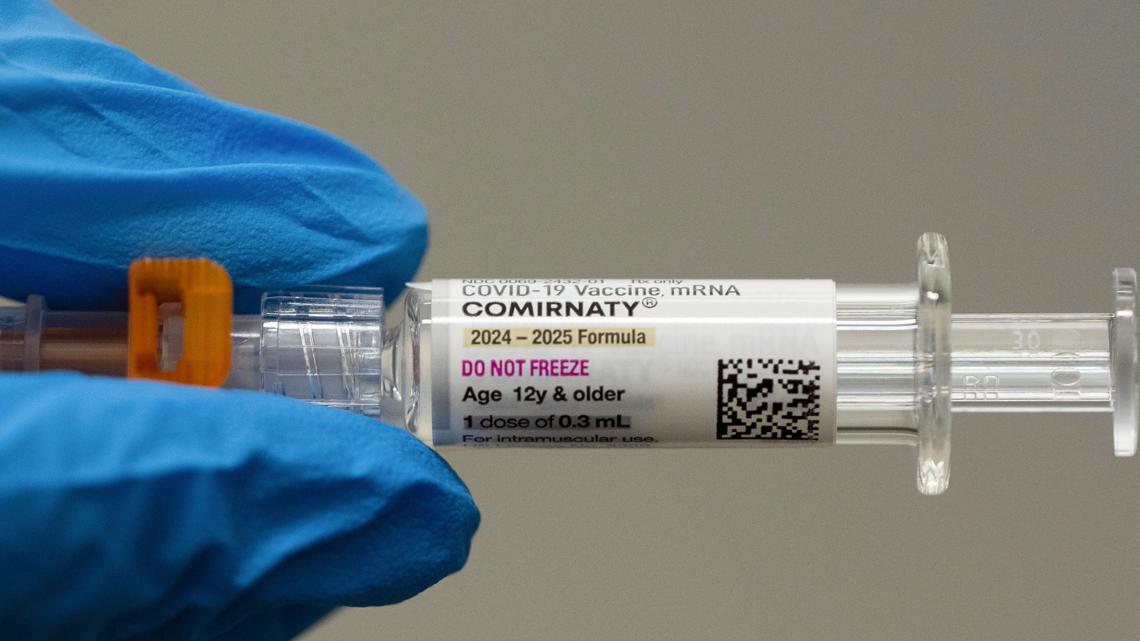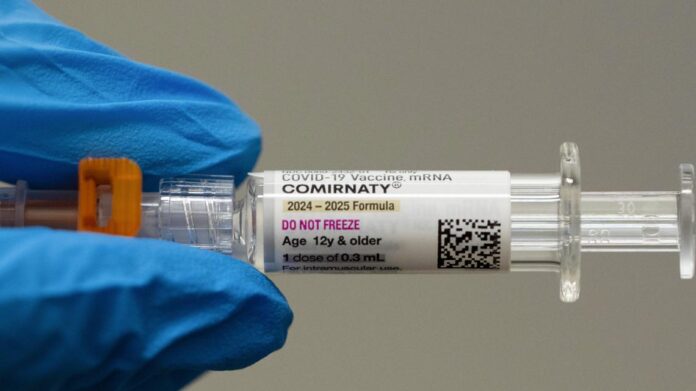
The shifting requirements have created widespread confusion about where Americans can access the shots.
WASHINGTON — Major pharmacy chains are restricting access to updated COVID-19 vaccines across more than a dozen states, creating new barriers for Americans seeking the shots.
CVS Pharmacy will not provide the updated 2025-26 COVID-19 vaccines at locations in several states without a prescription, the company confirmed Friday. In a statement, CVS Health said it expects to receive shipments of the newly authorized vaccines in the coming days but will begin offering them only in states where it is allowed under current regulations.
“Based on the current regulatory environment, CVS Pharmacy is offering FDA-authorized COVID-19 vaccinations” in 34 states, the company said.
In 13 states and Washington, D.C., patients may still receive the updated vaccines but only if they obtain a prescription from an authorized prescriber. Those states are Arizona, Colorado, Florida, Georgia, Kentucky, Louisiana, Maine, New York, North Carolina, Pennsylvania, Utah, Virginia and West Virginia.
CVS said it cannot currently offer the vaccines at all in Massachusetts, Nevada and New Mexico.
Walgreens, the nation’s other major pharmacy chain, is implementing similar restrictions. According to The New York Times, Walgreens requires prescriptions in 16 states, though the specific states differ somewhat from CVS’s list. The Times reported that Walgreens appears to require prescriptions in Arizona, Colorado, Georgia, Indiana, Louisiana, Missouri, Montana, New Mexico, New York, Oregon, South Carolina, Utah, Virginia, Washington state, West Virginia and Wisconsin.
The shifting requirements have created widespread confusion about where Americans can access the shots, with the two largest pharmacy chains in the country navigating what legal experts describe as an extremely difficult regulatory environment.
COVID-19 vaccines remain widely recommended by health officials, especially for older adults and people with underlying conditions.
The announcement comes amid broader uncertainty about vaccine policy under Health Secretary Robert F. Kennedy Jr., who has long criticized COVID-19 vaccines. In June, Kennedy fired every member of the Advisory Committee on Immunization Practices (ACIP), the body that makes binding recommendations concerning vaccine coverage and use.
Several states require pharmacists to provide immunizations in accordance with ACIP guidance. The committee has not yet met to recommend the updated vaccines, creating a legal gray area for pharmacy chains.
Legal experts said federal decisions are creating confusion for pharmacies to navigate. The biggest problem is that in some states, law prohibits pharmacists from administering vaccines that are not recommended by ACIP.
As of Thursday, the panel was not scheduled to meet for another three weeks. Sen. Bill Cassidy, R-La., chairman of the Senate’s health committee, has called for the meeting to be “indefinitely” postponed, which could mean many people’s access to shots will remain limited well into the fall.
A CVS spokesperson said the list of states where vaccines are available could change, depending on regulatory updates.
“We’ll administer FDA-authorized COVID-19 vaccines in states where legally permitted at CVS Pharmacy and/or MinuteClinic to meet our patients’ needs,” the company said.
CVS will make the vaccines readily available nationwide if the advisory panel recommends them, according to a company spokesperson. In the 34 states where the company has not set limits, people can check a box when making an appointment online to attest that they meet FDA criteria, without a prescription or other documentation.
A vast majority of shots were given at pharmacies last year. The new restrictions signal that federal decisions could reduce access more than the limitations outlined on paper, as not everyone has access to a doctor to obtain a prescription.
COVID vaccination rates have fallen precipitously since the height of the pandemic. Just 23 percent of adults and 13 percent of children reported getting an updated COVID vaccine last season, according to The New York Times.
The fact that pharmacies are limiting access to vaccines when COVID infections are rising, as they do every summer, is “really unconscionable,” Dr. Peter Chin-Hong, an infectious disease specialist at the University of California, San Francisco, told The New York Times.





